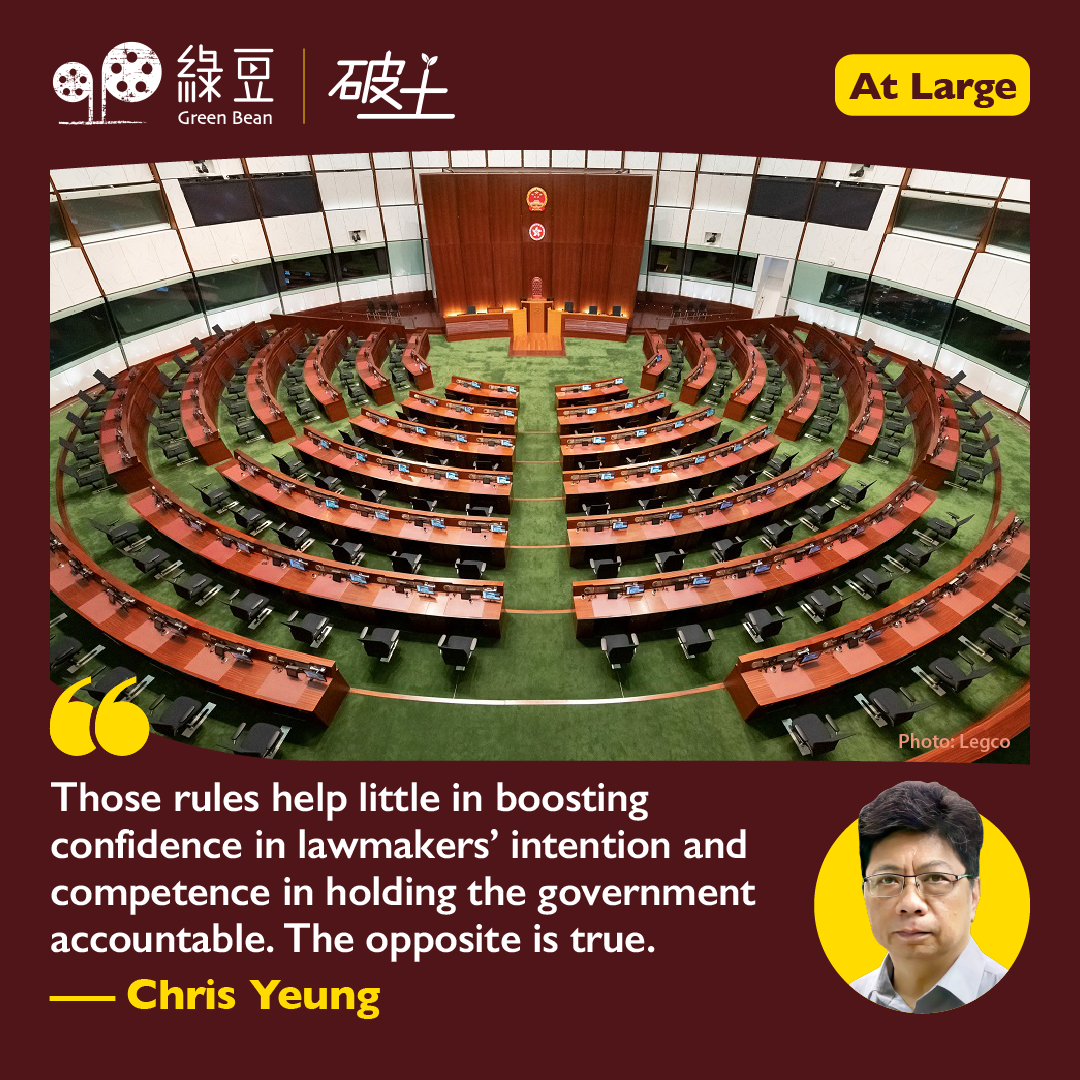Legco new rules a milestone mired in doubt

Billed as a revamp aimed to “perfect” the election system for the Legislative Council in the wake of the 2019 political unrest in Hong Kong, the Beijing-engineered exercise has turned out to be an embarrassment to the authorities and the city’s patriotic camp.
Opinion polls show public dissatisfaction rating of the “all-patriots” legislature formed after the 2021 election stood high. Many residents can’t tell the names of most lawmakers; and they don’t bother to know. Worse, they feel perplexed about what the lawmakers were doing.
New code of conduct
Starting this year, it has become apparent that Beijing’s tolerance wore thin. Chilly wind began to blow across the pro-Beijing early this year with rumours of Beijing’s gameplan of kicking out one-third of the incumbent lawmakers causing panic among the patriots.
It is against the backdrop of the lackluster “all-patriots” legislature that the 89 lawmakers (one seat was left vacant after the member quit to join the government) have unanimously approved a new code of conduct at a meeting last week.
The new code specifies requirements for meeting attendance, voting and other duties – plus tougher penalties for misconduct. It also requires lawmakers to “sincerely support” the chief executive and the government. Members, it says, should not “deliberately undermine or weaken the effectiveness of executive-led governance.”
Both LegCo President Andrew Leung and Chief Secretary Eric Chan Kwok-ki hailed the passages. Leung said the new code of conduct marked a “new milestone” for the legislature. Chan said: “This is precisely another example of Legco strengthening its self-governance with higher standards.”
The new rules, Chan claimed, will help lawmakers perform their duties more efficiently, enhance the efficiency and transparency of the council, and allow Legco to better perform its constitutional duties.”
Effectiveness is in doubt
Although both the lawmakers and top officials talked highly of the importance of the new code, ordinary citizens greeted it with indifference and cynicism – not without reason.
If they no longer care who the members are and what they are doing, they cannot possibly be interested in finding out their attendance record, nor the penalties given when they are found to have misconduct.
The background of the initiative of an upgraded code of conduct is still unclear. It looks more like a self-help exercise aimed to salvage the image of the lawmakers than a serious attempt to rebuild public confidence in the legislature. And even if it is the case of a PR offensive, its effectiveness is in doubt.
This is simply because Hongkongers are smart enough to know the dearth of elected mandates of the legislature cannot possibly be remedied by a set of rules written, passed and executed by the members themselves.
No matter how nicely the rules are written and vigorously implemented, the public will judge whether lawmakers have done a good job on the basis of their effectiveness in holding the government accountable and facilitating good governance.
With the four-year term of the newly-formed legislature nearing its end, a poll conducted by a research institute at the Chinese University of Hong Kong in March found half of the respondents were dissatisfied with the performance of the Legco.
Already suffering from a lack of representativeness attributed to the revamped electoral system, the lawmakers have only themselves to blame for the low popularity due to their dismal record in exercising effective checks and balances over the executive authorities.
Should “sincerely support” the government
Ironically, the more praises by the government over the high efficiency of legislators in giving approvals to their proposed bills and funding proposals the more sceptical and cynical the public, in particular supporters for democracy, towards Legco.
They rightly fear lawmakers have not been doing a good job listening to the relevant stake-holders and the public, relaying their concerns to and getting response from the government when scrutinising important bills and funding plans.
The passage of the new rules, which will be implemented when the new legislature is in place, comes about five months before the 2025 Legco election is held.
The last Legco polls held in 2021 saw a record low turnout, or 30.2 percent, since 1991.
Hopes, if any, that the new Legco “home rules” could help improve their image thus boost voters’ incentives in casting their votes in the December election look set to be mere wishful thinking.
Under the revised code, members should “sincerely support” the government. They should not harm executive-led governance. Those rules help little in boosting confidence in lawmakers’ intention and competence in holding the government accountable. The opposite is true.